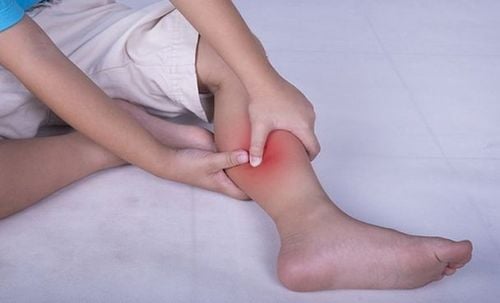Back pain and diarrhea can be symptoms of one or more different conditions. Both are very common. In some cases, diarrhea and back pain can be a warning sign of a serious medical condition.
Lower back pain and diarrhea are very common symptoms. About 80 percent of adults experience lower back pain at some point, and diarrhea is one of the symptoms that can strike anyone from time to time. A 2014 study of chiropractic patients found that lower back pain and bowel problems were common, although there did not appear to be a specific cause or connection between the two.
If you have recurring lower back pain and diarrhea, you may have an underlying medical condition. Lower back pain and diarrhea accompanied by fever, severe abdominal pain, or loss of bladder or bowel control may be signs of a serious medical condition, such as appendicitis or cauda equina syndrome.
1. Causes of back pain and diarrhea
Back pain and diarrhea can be completely unrelated, but if the symptoms recur, there may be an underlying medical cause. Here are some possible causes:
1.1 Appendicitis
Appendicitis is an inflammation of the appendix, a small organ located at the beginning of the large intestine in the lower right side of your abdomen. Pain from appendicitis usually starts near the navel and then moves to the lower right side of the abdomen. Some people have an appendix that extends behind the colon, which can cause lower back pain.
Other symptoms include:
-Diarrhea or constipation
-Fever
-Loss of appetite
Severe abdominal pain
-Nausea and vomiting
-Inability to pass gas
Appendicitis requires immediate treatment. If left untreated, the condition can worsen within hours, and the appendix may rupture. Once the appendix ruptures, it can spread infection throughout the abdominal cavity and become life-threatening. Therefore, doctors often advise patients to seek medical attention immediately if they have symptoms of appendicitis.
1.2 Kidney infection
Also known as pyelonephritis, a kidney infection is a type of urinary tract infection (UTI) that usually starts in the bladder or urethra and travels up to one or both kidneys. Kidney infections can cause permanent damage to the kidneys. Therefore, you should see a doctor immediately if you experience sudden lower back pain and diarrhea, along with nausea and fever.
You may also experience pain on one side or in the groin, along with symptoms of a lower UTI, such as cystitis. Other symptoms include:
-Burning sensation when urinating
-Frequent or urgent urination
-Cloudy or foul-smelling urine
-Kidney infections require immediate treatment with antibiotics to reduce the risk of serious complications.
1.3 Fecal impaction
Fecal impaction occurs when a large, hard mass of stool becomes stuck in the rectum. It is often caused by chronic constipation, which may be related to long-term use of certain laxatives.
When constipated, stool becomes hard and dry, making it difficult to pass. The risk increases if you stop using laxatives. Fecal impaction is more common in older adults but can occur at any age with chronic constipation.
The stool can cause pain and pressure in the abdomen and lower back. You may also experience sudden watery diarrhea after prolonged constipation.
Other symptoms include:
-Cramping
-Bloating
-Rectal bleeding
-Increased bladder pressure
-Urinary incontinence
Irritable Bowel Syndrome (IBS)
IBS is a common chronic disorder affecting an estimated 10 to 15 percent of the world's population. It is characterized by a combination of symptoms, including:
-Bloating
-Abdominal pain
-Diarrhea
-Constipation

Although IBS does not lead to cancer or other serious diseases and does not cause permanent damage to the colon (unlike inflammatory bowel disease), it can be very uncomfortable.
IBS symptoms can vary and come and go. Along with abdominal pain, IBS can cause lower back pain and diarrhea, along with nausea. It can also cause constipation or a combination of diarrhea and constipation, alternating between the two. Other common symptoms include:
-Cramping
-Gas
-Mucus in the stool
1.4 Enteropathic arthritis
Enteropathic arthritis (arthritis associated with bowel disease) is a chronic inflammatory arthritis related to inflammatory bowel disease (IBD).
Types of IBD include ulcerative colitis and Crohn's disease, with about one-fifth of people with either condition developing enteropathic arthritis.
Different types of arthritis can cause similar symptoms or be related to the development of IBD, such as ankylosing spondylitis and psoriatic arthritis. IBD often causes diarrhea and abdominal pain. IBD-related arthritis can cause lower back pain and diarrhea.
Symptoms vary depending on the type of IBD and arthritis and may include:
-Joint pain and stiffness
-Bloody diarrhea
-Cramping
-Loss of appetite
-Fatigue
1.5. Pancreatic cancer
According to the American Cancer Society, pancreatic cancer accounts for 3% of all cancers in the United States.
Symptoms of pancreatic cancer vary depending on the type and location of the tumor and the stage of the cancer. Early-stage pancreatic cancer often does not cause any signs or symptoms.
Possible signs and symptoms include:
-Upper abdominal pain
-Back pain
-Nausea
-Dark urine
-Jaundice
-Weight loss
-Poor appetite
-Diarrhea
-Nausea and vomiting
It is important to remember that many of these symptoms are often caused by less serious conditions. If you are concerned about pancreatic cancer, see a doctor. Back pain is one of the symptoms of pancreatic cancer.
2. Reducing back pain and treating diarrhea
There are several medical and home treatment methods for lower back pain and diarrhea, depending on the cause.
Back pain and diarrhea can often be alleviated with home remedies. If a health condition is causing your symptoms, your doctor will need to treat the underlying cause of the back pain and diarrhea.
2.1 Home treatment for back pain and diarrhea
For lower back pain or diarrhea:
-Over-the-counter (OTC) pain relievers
-Heat and cold therapy
-Gentle stretching and exercise
-Epsom salt baths
-Limiting alcohol intake
-OTC diarrhea medications
-Drinking clear fluids
-Avoiding dairy and high-fiber foods for a few days
2.2 Medical treatment
Medical treatment will depend on the underlying cause of your symptoms. It may include:
-Antibiotics
-Prescription diarrhea medications
-Muscle relaxants
-IV fluids and electrolyte replacement
-Biofeedback
-Cancer treatments
-Surgery

You should see a doctor if your symptoms do not improve after a few days and seek emergency care if you experience:
-Severe abdominal or back pain
-High fever
-Blood in the stool
-Sudden loss of bowel or bladder control
Severe dizziness or confusion
Occasional back pain and diarrhea are common symptoms that may be completely unrelated. Any recurring or severe symptoms should be discussed with a doctor to rule out more serious causes.
To arrange an appointment, please call HOTLINE or make your reservation directly HERE. You may also download the MyVinmec app to schedule appointments faster and manage your reservations more conveniently.
ReferencesAnsari P. (2017). Intestinal obstruction. merckmanuals.com/en-ca/home/digestive-disorders/gastrointestinal-emergencies/intestinal-obstruction
v75818 Back pain. (2016). niams.nih.gov/health-topics/back-pain Cleveland Clinic Staff. (2016). Appendicitis. my.clevelandclinic.org/health/diseases/8095-appendicitis Facts about IBS: Statistics. (2016). aboutibs.org/facts-about-ibs/statistics.html Inflammatory bowel disease. (n.d.). arthritis.org/about-arthritis/types/inflammatory-bowel-disease/ Irritable bowel syndrome. (2018). womenshealth.gov/a-z-topics/irritable-bowel-syndrome














